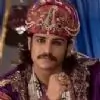Originally posted by: deejagi
Hi Abhay, nice to have you explained but even I am not defending on killing Nandas but the way in which happened didn't go well with me. They were real warriors and reserved a warrior's deaths. I would have loved it even if he had chopped off all the head's in one go ,sorry that's what he did right.
But he could have asked some of his soldiers to do the execution and he could have challenged Mahapadmanand for a duel and killed him.
I am not against him fighting A female if she poses herself as his enemy. Or he could have challenged her for the duel and fix her to such a situation that she should not appose him killing her father, if she was defeated. He would have bargained her hand as well as victory. Anyway let's wait for today's episode before committing a crime
Jaya,
It is always a pleasure to read your posts. I have greatly benefited from them in the past. I have divided your comment in 3 parts.
For the first part.
I concur, as far as the treatment of Nanda princes is concerned, as i said in my first comment above, last night. For all / any fault of theirs, they were a powerful force to reckon with. The war was a highly pitched one and hotly contested, from whatever sources we know. Hence such a cowardly conduct was not right in my opinion. Wars in ancient times were far more destructive than what happened in medieval ages.
For the second part.
I have a counter thought to offer. Since they had already shown the Nandas frightened and timid towards the end of war, hence first option of challenging for a duel is ruled out. Moreover, the Nanda Emperor was already given a challenge of duel in the battle field from where he ran away.
Second clause is - CGM should have asked some other soldiers to execute the Nanda ruler. This, i think, is not possible.
There are 2 reasons which i can offer -
1. Psychological reasons and
2. Mahabharata (seen as a war manual by military historians) praises the warrior who eliminates his rival, and compares him with the prowess of Sri Vishnu. Lets see.
Psychologically, the new king should eliminate the old king. This creates a great impact on the soldiers and the population in general. They get to know that the new master is no less in any aspect, than the old, who was governing them. Do you remember the first episode of Jodha Akbar ? Bairam Khan asks Akbar to kill Hemu after winning the Panipat war to get the title of "Ghazi" ; apart from the supposed religious aspect , the reason was - He wanted Akbar to show his might to his soldiers and make an impression that whoever comes in my way would be put off as ruthlessly as possible. This was the psychological aspect of the war. Central Asian tribes were very dreaded ; precisely for the brutal manner in which they conducted warfare.
Coming to second point.
In the Santi Parva in Mahabharata, Pitamaha Bhishma in a conversation with Yudhishthira, narrates a story and quotes the God of Gods Indra saying : "That powerful warrior who, having slain the commander of the hostile army, mounts the vehicle of his fallen antagonist, comes to be regarded as possessed of the prowess of Vishnu himself and the intelligence of Brihaspati, the preceptor of the celestials. "
Military historians have taken great note of this point. There was a strong meaning and importance attached to the person who eliminated the rival commander / king.
For the third part
It is about females fighting in war. I too have no problem with the Nanda princess entering the war and even fighting in the war. Only the manner of her entry was terrible. And as listed above, this was a fault of CVs. They seem confused what to show.
If they had brought her in the war field, then there was no need of showing CGM's meddling with her garment. A proper duel was needed.
Just for note, females took part in wars in ancient India. I have made a thread about women in ancient times and also included some notes in it about women and military.
Alexander while marching into India had to fight with a principality in the North West which had female contingents in it ; the king died and the queen and her daughter commanded the army. It was a long siege like the Chittor battle of Akbar. Alexander emerged victorious with great difficulty and eliminated everyone there - male OR female.
I have made a note on my latest thread about this war. {
Link} BTW, i have already made a note about interesting views of Chanakya on war , which i said in the first comment above. {
Link}
Edited by history_geek - 9 years ago
































